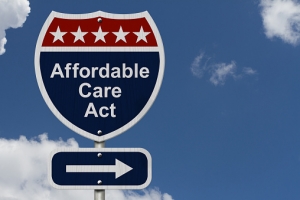Benefits Buzz
The Affordable Care Act (ACA) requires certain entities to report information to the Internal Revenue Service (IRS) relative to health insurance coverage. The reporting is generally completed by insurance companies, government-run Exchanges and applicable large employers. The reporting helps the IRS enforce three key provisions of the ACA:
- Most U.S. citizens and lawfully present residents must have health insurance or pay a penalty. This is referred to as the Individual Mandate. The reporting helps the IRS understand who has health insurance coverage.
Group health plans typically make coverage available to current or former employees and their spouses and children. However, some employers extend coverage to certain groups of non-employees. The most common example would be letting a business owner participate in the plan. Most types of business owners aren’t classified as employees for tax purposes, but rather they are said to be self-employed.
Posted September 26th, 2016 in Producers, Employers, Individuals
The cornerstone of the Affordable Care Act (ACA) is arguably the Health Insurance Marketplaces, also referred to as the Exchanges. Effective 2014, previously uninsurable individuals could start enrolling in a health insurance plan without regard to their medical history, and people who had trouble affording coverage could receive subsidies to reduce their out-of-pocket costs and/or premiums if certain requirements could be met.
Posted September 19th, 2016 in Producers, Employers, Individuals
Employers must provide a written notice on an annual basis to any Medicare-eligible individuals who are covered under a group health plan that includes prescription drug coverage. The notice is required to include information as to whether the prescription drug coverage is considered to be creditable. In other words, is the prescription drug coverage at least as good as the standard Medicare Part D plan?
Today, September 13, 2016, marks the three-year anniversary of the release date for IRS Notice 2013-54, which ironically occurred on Friday the 13th. A few years back, benefits industry leaders thought employers could be deterred from adopting Health Reimbursement Arrangements (HRAs) since much of the guidance made changes to the types of HRAs that could be offered. Below is a snapshot of the (now) permissible types of HRAs.
Posted September 6th, 2016 in Producers, Employers, Individuals
The Affordable Care Act (ACA) continues to evolve. Here are 10 changes expected to take effect in 2017.







